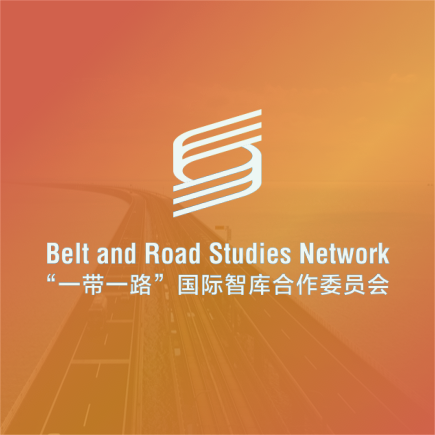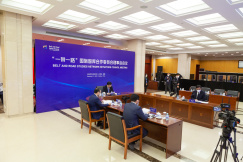
ONG TEE KEAT 翁诗杰, Chairman, Centre for New Inclusive Asia, Malaysia
Speech at Belt and Road Forum (BRF) in Beijing on April 25, 2019
On the outset, may I congratulate the organiser for their proactiveness in hosting this landmark forum event for the think tank outfits in conjunction with the Belt & Road Forum.
As BRI is entering its 6th year , it is time for China, the initiator of BRI and all the other stakeholders to conduct a comprehensive appraisal of BRI in face of new challenges ahead.
As an unprecedented transcontinental initiative in pursuit of shared prosperity and destiny through inclusive economic collaboration and infrastructural connectivity, it is only fair that BRI must be studied and scrutinized collectively in the right perspective without any prejudice. In this regard, the inception of Belt Road Studies Network ( BRSN ) has no doubt provided a timely answer to the arising need.
In the practice of multi-lateralism against the backdrop of globalisation, seeking economic collaboration is the order of the day. It is not and should never be the monopoly of any nation, not the present superpower ; and certainly not the old colonial masters of the past.
While the international community is anticipating China to play a greater role on the world stage, BRI should at the very least be viewed justly and objectively, if not greeted as a noble and laudable endeavour. Any hostile move in demonizing the initiative as ill intentioned is nothing but grossly sour grape mentality to the first order, constrained by the zero sum perspective.
Nonetheless the impact of repeated fabrications in the mounting offensive launched against BRI must never be underestimated. While it serves as an alert for China to re-examine the areas of concern in the implementation of BRI projects abroad, allegations must be countered timely with facts and figures before they are disseminated indiscriminately and cited repeatedly as the gospel truth.
While BRI is embracing the world progressively, its rules, strategies and norms are naturally expected to have a seamless link with the prevailing international practice, notably the upholding of such principles as fairplay, openness and transparency.
These values are no dogmatic rhetorics but must be convincingly manifested in the BRI project implementation amid the mounting adverse publicity revved up by the hostile critics.
As the local social norms and political interests of the BRI participating countries may vary from country to country, it is always imperative for China to have a good grasp of such social parameters via strategic outreach to the local think tank outfits or the other stakeholders in the host countries.
While acknowledging the importance of Government-to-Government engagement in ensuring successful implementation of BRI projects in countries practicing parliamentary democracy, the Chinese SOEs should never allow themselves to be beholden to any single party, political leader or faction in the host country. Instead, multiple conduits of outreach characterized by even-handed engagement with both the ruling elite as well as the voices from the wilderness should be encouraged.
Parallel to this, proactive efforts in sowing goodwill among the locals via CSR (Corporate Social Responsibility ) programmes hosted by the Chinese firms implementing the BRI project would certainly pay off in one way or another. This befits the clarion call for establishing the people-to-people connectivity with inculcation of mutual trust and confidence as was clearly intended in the BRI implementation.
However, all this would remain an uphill task so long as the Chinese firms stay aloof and insulated from interaction with the local NGO outfits, notably the think-tanks, which make ideal advisory consultants in the public communication.
On the contrary, they need to move away from the conventional comfort zone of merely engaging with the ethnic Chinese communities or their fellow compatriots residing in the host countries.
True indeed, at this juncture, winning the souls and minds of the BRI participating nations is indeed of utmost significance to the ultimate success of the Initiative, particularly so, in the wake of incessant barrage of potshots from the international critics' camp.
In the macro perspective, there is room for enhancing the level of transparency in any of the BRI project implementation.
By having international scrutiny of the relevant project feasibility and debt sustainability, not only would the facts and figures be allowed to speak for itself in debunking the malicious untruths, at the same time, success stories of the project delivery could also be shared and trumpeted globally. This would conceivably help to amplify the impact of BRI worldwide.
In this respect, a coalition network of multi-nation think-tanks with in-depth understanding of BRI would emerge as an ideal scrutineer for its impartiality.
On the other hand, by so doing, the perceived Chinese dominance or China-centric assertiveness of BRI could also be avoided to make the Initiative a truly participatory and symbiotic collaboration that involve all partner nations.
In pursuit of shared prosperity and destiny, any overzealous assertiveness laced with self-proclaimed altruistism would only court unwarranted suspicion and misgivings to the detriment of the noble ideals of BRI. Instead, a transparent audit of what China stands to benefit from these BRI projects may help to pre-empt a lot of accusations arising out of sheer mistrust.
As BRI is not synonymous to any kind of trans-border aid, but more of a China-initiated economic collaboration, it is justifiable that China expects reasonable viable returns. This should be well explained to the populace of the host countries. In this regard, the BRSN would serve as an ideal impartial vehicle to meet the purpose.
All in all, the proposed BRSN is not merely a coalition of think tank outfits, but also a useful platform to promote better understanding of BRI project implementation among the stakeholder countries through its roles as an impartial watchdog, scrutineer and appraiser. In fact, BRSN in itself is already a clear manifestation of accommodative inclusiveness.
DISCLAIMER
The views expressed in this article are entirely those of the author(s) own, and not those of the Belt and Road Studies Network (BRSN).
今年1月,新冠疫情突然而至。为了防止疫情扩散,我国采取了史无前例的交通阻断及人流限制措施,这也为我国农业农村经济发展带来了巨大挑战。

the Belt and Road Studies Network (BRSN) has been launching a call since January 2023 for reports from think tanks and researchers around the world.
2023-03-07